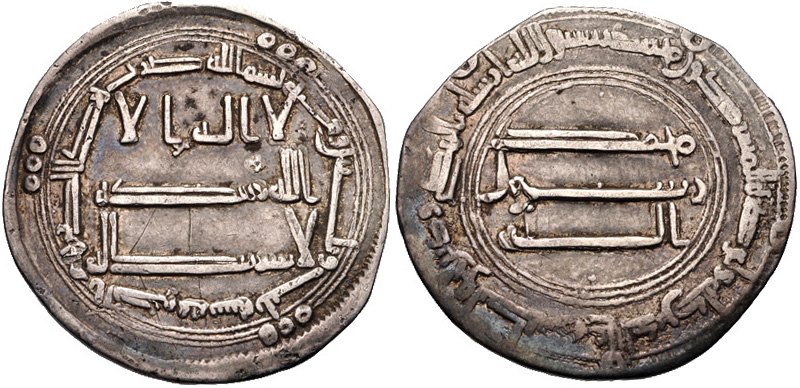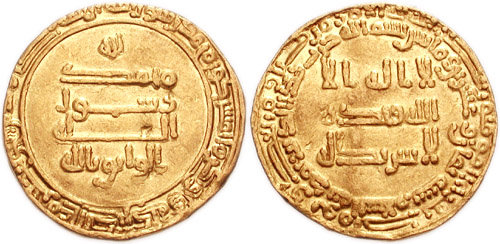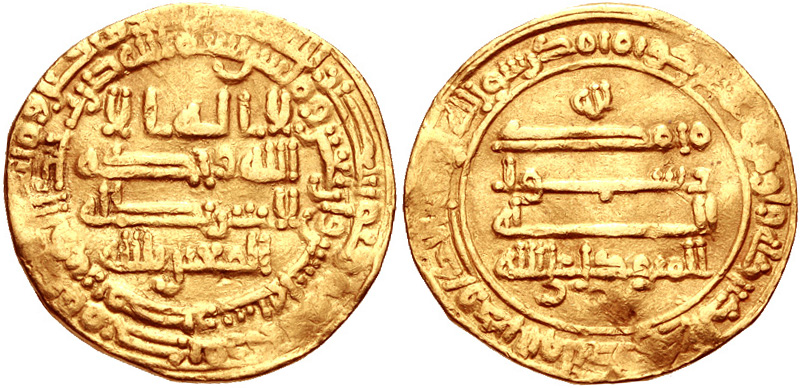|
Mihna
The Mihna ( ar, محنة خلق القرآن, ''Miḥnat k͟halaq al-Qurʾān'' "ordeal egardingthe createdness of the Qur'an") refers to the period of religious persecution instituted by the 'Abbasid Caliph al-Ma'mun in 833 CE in which religious scholars were punished, imprisoned, or even killed unless they conformed to Muʿtazila doctrine. The policy lasted for eighteen years (833–851 CE) as it continued through the reigns of al-Ma'mun's immediate successors, al-Mu'tasim and al-Wathiq, and four years of al-Mutawakkil who reversed it in 851. The abolition of Mihna is significant both as the end of the Abbasid Caliph's pretension to decide matters of religious orthodoxy, and as one of the few instances of specific religious persecution in Medieval Islam. Under al-Ma'mun In 827 CE, the caliph al-Ma’mun issued the proclamation of the doctrine of the createdness of the Qur'an. The proclamation was followed by the institution of the Mihna six years later, approximately fo ... [...More Info...] [...Related Items...] OR: [Wikipedia] [Google] [Baidu] |
Ahmad Ibn Abi Du'ad
Abu 'Abdallah Ahmad ibn Abi Du'ad al-Iyadi ( ar, أبو عبد الله أحمد بن أبي دؤاد الإيادي, ʾAbū ʿAbd Allāh ʾAḥmad ibn ʾAbī Duʾād al-ʾIyādī) (776/7–June 854) was an Islamic religious judge (''qadi'') of the mid-ninth century. A proponent of Mu'tazilism, he was appointed as chief judge of the Abbasid Caliphate in 833, and became highly influential during the caliphates of al-Mu'tasim and al-Wathiq. During his tenure as chief judge he sought to maintain Mu'tazilism as the official ideology of the state, and he played a leading role in prosecuting the Inquisition (''mihnah'') to ensure compliance with Mu'tazilite doctrines among officials and scholars. In 848 Ibn Abi Du'ad suffered a stroke and transferred his position to his son Muhammad, but his family's influence declined during the caliphate of al-Mutawakkil, who gradually abandoned Mu'tazilism and put an end to the '. As one of the most senior officials during the reigns of several caliph ... [...More Info...] [...Related Items...] OR: [Wikipedia] [Google] [Baidu] |
Al-Ma'mun
Abu al-Abbas Abdallah ibn Harun al-Rashid ( ar, أبو العباس عبد الله بن هارون الرشيد, Abū al-ʿAbbās ʿAbd Allāh ibn Hārūn ar-Rashīd; 14 September 786 – 9 August 833), better known by his regnal name Al-Ma'mun ( ar, المأمون, al-Maʾmūn), was the seventh Abbasid caliph, who reigned from 813 until his death in 833. He succeeded his half-brother al-Amin after a civil war, during which the cohesion of the Abbasid Caliphate was weakened by rebellions and the rise of local strongmen; much of his domestic reign was consumed in pacification campaigns. Well educated and with a considerable interest in scholarship, al-Ma'mun promoted the Translation Movement, the flowering of learning and the sciences in Baghdad, and the publishing of al-Khwarizmi's book now known as "Algebra". He is also known for supporting the doctrine of Mu'tazilism and for imprisoning Imam Ahmad ibn Hanbal, the rise of religious persecution ('' mihna''), and for the resum ... [...More Info...] [...Related Items...] OR: [Wikipedia] [Google] [Baidu] |
Quranic Createdness
Quranic createdness refers to the doctrinal position that the Quran was created, rather than having always existed and thus being "uncreated". In the Muslim world the opposite point of view — that the Quran is uncreated — is the accepted stance among the majority Muslims. Shia Muslims on the other hand argue for the createdness of the Quran. The dispute over which was true became a significant point of contention in early Islam. The Islamic rationalist philosophical school known as the Mutazila held that if the Quran is God's word, logically God "must have preceded his own speech". The Quran is believed to express God's eternal will, but the work itself must have been created by Him at some point in time. History The controversy over the doctrine in the Abbasid caliphate came to a head during the reign of Caliph Abd Allah al-Ma’mun. In 827 CE, al-Ma’mun publicly adopted the doctrine of createdness, and six years later instituting an inquisition known as the ''mihna' ... [...More Info...] [...Related Items...] OR: [Wikipedia] [Google] [Baidu] |
Al-Mu'tasim
Abū Isḥāq Muḥammad ibn Hārūn al-Rashīd ( ar, أبو إسحاق محمد بن هارون الرشيد; October 796 – 5 January 842), better known by his regnal name al-Muʿtaṣim biʾllāh (, ), was the eighth Abbasid caliph, ruling from 833 until his death in 842. A younger son of Caliph Harun al-Rashid (r. 786–809), he rose to prominence through his formation of a private army composed predominantly of Turkic slave-soldiers (, sing. ). This proved useful to his half-brother, Caliph al-Ma'mun, who employed al-Mu'tasim and his Turkish guard to counterbalance other powerful interest groups in the state, as well as employing them in campaigns against rebels and the Byzantine Empire. When al-Ma'mun died unexpectedly on campaign in August 833, al-Mu'tasim was thus well placed to succeed him, overriding the claims of al-Ma'mun's son al-Abbas. Al-Mu'tasim continued many of his brother's policies, such as the partnership with the Tahirids, who governed Khurasan and Baghda ... [...More Info...] [...Related Items...] OR: [Wikipedia] [Google] [Baidu] |
Al-Wathiq
Abū Jaʿfar Hārūn ibn Muḥammad ( ar, أبو جعفر هارون بن محمد المعتصم; 17 April 812 – 10 August 847), better known by his laqab, regnal name al-Wāthiq bi’llāh (, ), was an Abbasid caliph who reigned from 842 until 847 AD (227–232 AH in the Islamic calendar). Al-Wathiq is described in the sources as well-educated, intellectually curious, but also a poet and a drinker, who enjoyed the company of poets and musicians as well as scholars. His brief reign was one of continuity with the policies of his father, al-Mu'tasim, as power continued to rest in the hands of the same officials whom al-Mu'tasim had appointed. The chief events of the reign were the suppression of revolts: Bedouin rebellions occurred in Bilad al-Sham, Syria in 842, the Hejaz in 845, and the Yamamah in 846, Arminiya, Armenia had to be pacified over several years, and above all, an abortive uprising took place in Baghdad itself in 846, under Ahmad ibn Nasr al-Khuza'i. The latter w ... [...More Info...] [...Related Items...] OR: [Wikipedia] [Google] [Baidu] |
Al-Mutawakkil
Abū al-Faḍl Jaʿfar ibn Muḥammad al-Muʿtaṣim bi-ʾllāh ( ar, جعفر بن محمد المعتصم بالله; March 822 – 11 December 861), better known by his regnal name Al-Mutawakkil ʿalā Allāh (, "He who relies on God") was the tenth Abbasid caliph. He succeeded his brother, al-Wathiq, and is known for expanding the empire to its maximum extent. He was deeply religious, and is remembered for discarding the Muʿtazila, ending the Mihna (a period of persecution of Islamic scholars), and releasing Ahmad ibn Hanbal. He is also known for his tough rule, especially with respect to non-Muslim subjects. He was assassinated on 11 December 861 by the Turkic guard with the support of his son, al-Muntasir, marking the beginning of the period of civil strife known as the "Anarchy at Samarra". Early life Al-Mutawakkil was born on February/March 822 to the Abbasid prince Abu Ishaq Muhammad (the future al-Mu'tasim) and a slave concubine from Khwarazm called Shuja. His ... [...More Info...] [...Related Items...] OR: [Wikipedia] [Google] [Baidu] |
Persecution By Muslims
Religious persecution is the systematic mistreatment of an individual or a group of individuals as a response to their religious beliefs or affiliations or their lack thereof. The tendency of societies or groups within societies to alienate or repress different subcultures is a recurrent theme in human history. Moreover, because a person's religion often determines their sense of morality, worldview, self-image, attitudes towards others, and overall personal identity to a significant extent, religious differences can be significant cultural, personal, and social factors. Religious persecution may be triggered by religious bigotry (i.e. when members of a dominant group denigrate religions other than their own) or it may be triggered by the state when it views a particular religious group as a threat to its interests or security. At a societal level, the dehumanization of a particular religious group may readily lead to violence or other forms of persecution. Religious persecuti ... [...More Info...] [...Related Items...] OR: [Wikipedia] [Google] [Baidu] |
Muʿtazila
Muʿtazila ( ar, المعتزلة ', English: "Those Who Withdraw, or Stand Apart", and who called themselves ''Ahl al-ʿAdl wa al-Tawḥīd'', English: "Party of ivineJustice and Oneness f God); was an Islamic group that appeared in early Islamic history and were known for their neutrality in the dispute between Alī and his opponents after the death of the third caliph, Uthman. By the 10th century CE the term had also come to refer to an Islamic school of speculative theology (kalām) that flourished in Basra and Baghdad (8th–10th century).Mutazilah ", ''''. The later Mu'tazila school developed an |
Mu'tazilism
Muʿtazila ( ar, المعتزلة ', English: "Those Who Withdraw, or Stand Apart", and who called themselves ''Ahl al-ʿAdl wa al-Tawḥīd'', English: "Party of [Divine] Justice and Oneness [of God]"); was an Islamic group that appeared in early Islamic history and were known for their neutrality in the dispute between Alī and his opponents after the death of the third caliph, Uthman. By the 10th century CE the term had also come to refer to an Islamic school of speculative theology (kalām) that flourished in Basra and Baghdad (8th–10th century).Mutazilah ", ''Encyclopaedia Britannica''. The later Mu'tazila school developed an Islamic type of rationalism, partly influenced by Ancient Greek philosophy, based around three fundamental principles: the oneness (''Tawhid'') and justice (''Theodicy, Al-'adl'') of God ... [...More Info...] [...Related Items...] OR: [Wikipedia] [Google] [Baidu] |
Mu'tazilite
Muʿtazila ( ar, المعتزلة ', English: "Those Who Withdraw, or Stand Apart", and who called themselves ''Ahl al-ʿAdl wa al-Tawḥīd'', English: "Party of ivineJustice and Oneness f God); was an Islamic group that appeared in early Islamic history and were known for their neutrality in the dispute between Alī and his opponents after the death of the third caliph, Uthman. By the 10th century CE the term had also come to refer to an Islamic school of speculative theology (kalām) that flourished in Basra and Baghdad (8th–10th century).Mutazilah ", ''''. The later Mu'tazila school developed an |
Religious Persecution
Religious persecution is the systematic mistreatment of an individual or a group of individuals as a response to their religion, religious beliefs or affiliations or their irreligion, lack thereof. The tendency of societies or groups within societies to alienate or repress different subcultures is a recurrent theme in human history. Moreover, because a person's religion often determines their sense of morality, worldview, self-image, attitudes towards others, and overall personal identity to a significant extent, religious differences can be significant cultural, personal, and social factors. Religious persecution may be triggered by religious prejudice, bigotry (i.e. when members of a dominant group denigrate religions other than their own) or it may be triggered by the state when it views a particular religious group as a threat to its interests or security. At a societal level, the dehumanization of a particular religious group may readily lead to violence or other forms of p ... [...More Info...] [...Related Items...] OR: [Wikipedia] [Google] [Baidu] |
Inquisition
The Inquisition was a group of institutions within the Catholic Church whose aim was to combat heresy, conducting trials of suspected heretics. Studies of the records have found that the overwhelming majority of sentences consisted of penances, but convictions of unrepentant heresy were handed over to the secular courts, which generally resulted in execution or life imprisonment. The Inquisition had its start in the 12th-century Kingdom of France, with the aim of combating religious deviation (e.g. apostasy or heresy), particularly among the Cathars and the Waldensians. The inquisitorial courts from this time until the mid-15th century are together known as the Medieval Inquisition. Other groups investigated during the Medieval Inquisition, which primarily took place in France and Italy, include the Spiritual Franciscans, the Hussites, and the Beguines. Beginning in the 1250s, inquisitors were generally chosen from members of the Dominican Order, replacing the earlier practice ... [...More Info...] [...Related Items...] OR: [Wikipedia] [Google] [Baidu] |




_-_BAE09705.jpg)

